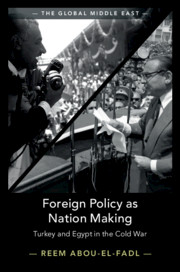
- Cited by 3
-
Cited byCrossref Citations
This Book has been cited by the following publications. This list is generated based on data provided by Crossref.
Hinnebusch, Raymond 2019. The Routledge Handbook to the Middle East and North African State and States System. p. 3.
Bishop, Elizabeth 2023. The Political Impact of African Military Leaders. p. 269.
Kıralp, Şevki 2024. KARL MARX’IN YAZILARINDA 1853-1856 KIRIM SAVAŞI: RUSYA VE AVRUPA DEVLETLERİNİN OSMANLI İMPARATORLUĞU’NA DAİR POLİTİKALARI. Avrasya Uluslararası Araştırmalar Dergisi, Vol. 12, Issue. 39, p. 50.
- Publisher:
- Cambridge University Press
- Online publication date:
- December 2018
- Print publication year:
- 2018
- Online ISBN:
- 9781108566025




